Senators Bennet ’87, Hickenlooper ’74 Discuss Leadership during Brown Memorial Lecture
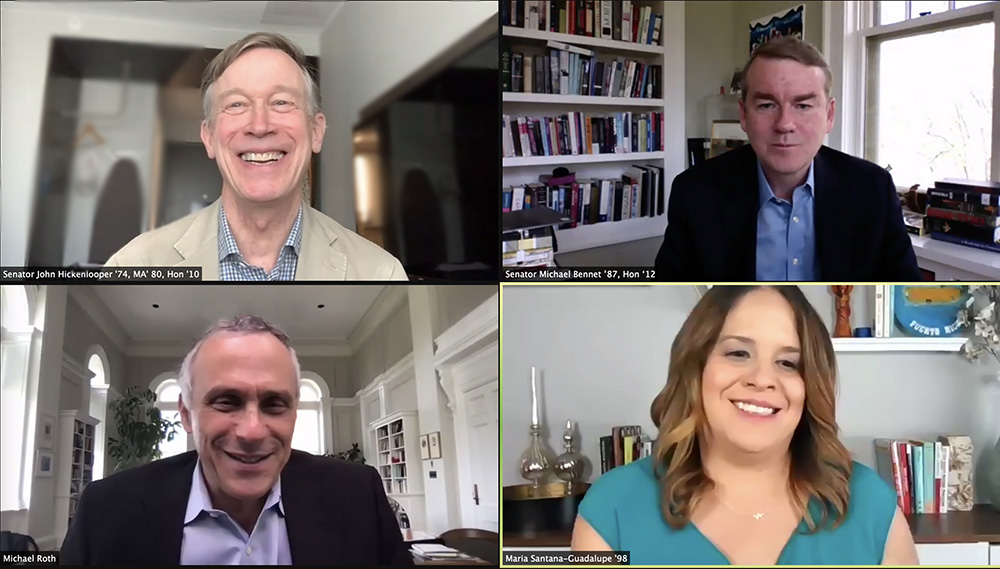
On April 9, Wesleyan hosted its 41st Annual Philip B. Brown ’44 Memorial Lecture. President Michael Roth ’78 led a conversation with featured speakers Colorado Senators Michael Bennet ’87 and John Hickenlooper ’74, MA ’80, Hon. ’10. Maria Santana-Guadalupe ’98, anchor and correspondent for CNN en Español, provided the introduction and moderated an audience Q&A.
The speakers discussed leadership, civic engagement, immigration, gun safety, the COVID-19 pandemic, equity and anti-racism, coalition building, filibusters, and the paths both the senators have traveled from Wesleyan to Washington, D.C. (Watch the entire program online here.)
The late Phillip B. Brown ’44, P’83, Hon. ’80 majored in English at Wesleyan. He was a senior partner in the law firm of Squire, Sanders Dempsey; chairman of the Wesleyan University Board of Trustees; and chair of the Wesleyan Alumni chapter in Washington D.C. His daughter, Sara O’Hagan graduated from Wesleyan in 1983.
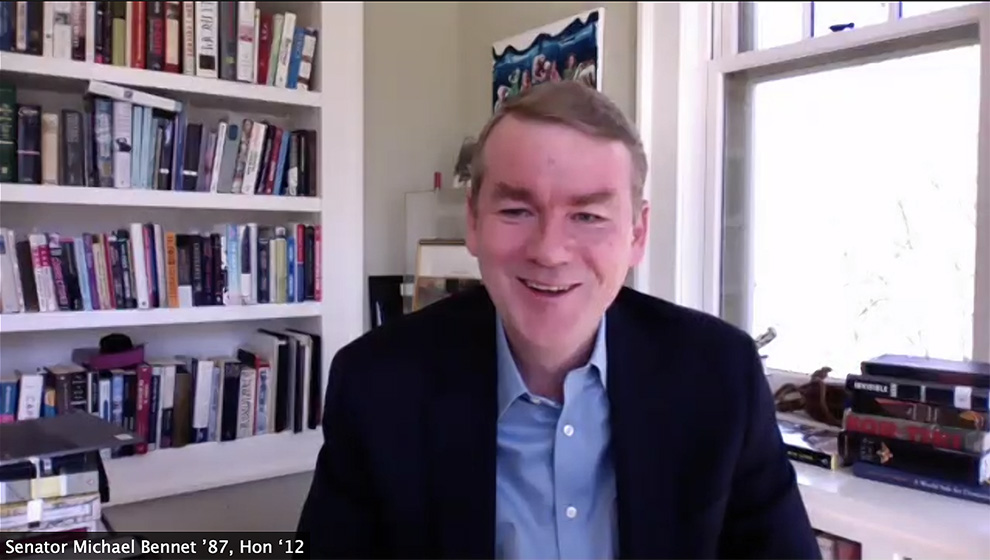
Bennet stressed the importance of listening to others who don’t share similar assumptions or viewpoints.
“At Wesleyan, I got very used to the idea that people disagree with me,” Bennet said. “The founders of this country … were creating a society where they were not expecting us to agree with one another—they were expecting us to disagree with one another because there was no king or tyrant to tell us what to do and they believed out of those disagreements we would forge more durable and more imaginative solutions.”
Although Bennet and Hickenlooper are both Democrats from Colorado, Bennet pointed out that they frequently have differences of opinion.
“So often, there’s this idea that you can’t learn from anybody else—that you’re taking a ‘principled position’ which is often a position on the side of a very narrow special interest and not actually [one that represents] the American people. I just don’t believe that’s the approach that the founders sought to create. The reason the Senate is set up the way it is with 100 people from all these different states is to have that give and take. It’s an exercise in pluralism and to the extent that nobody can work together [or] listen together—that’s a real problem because it’s central to our exercise in self-government.”
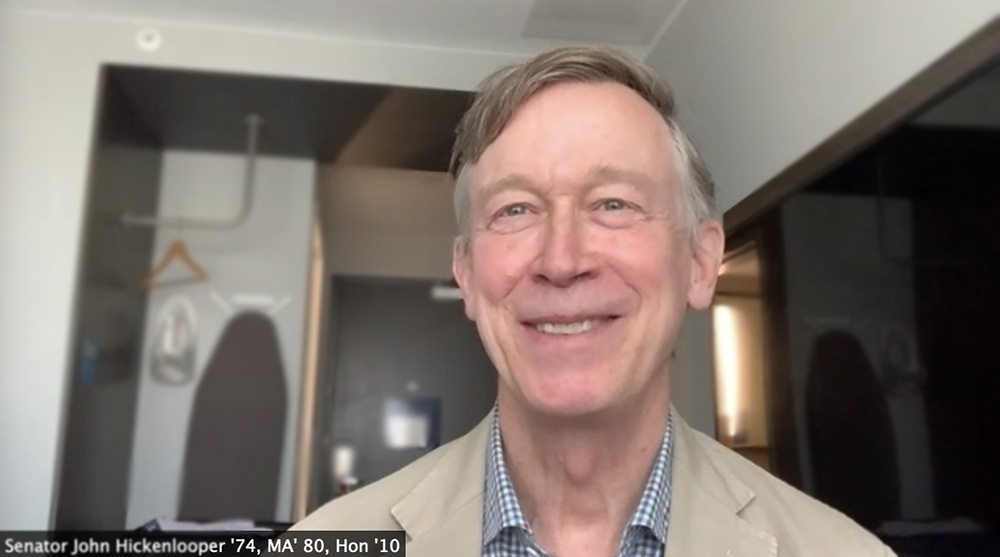
During the lecture, Hickenlooper touched on the COVID-19 pandemic and echoed Bennet’s thoughts on the importance of working together to solve problems.
“I think it’s fair to say we’ve just had the most significant natural disaster in history,” he said. “This is going to be a real measure of President Biden, but I think he’s got a legitimate shot of bringing us together— as long as we’re willing to listen to each other’s opinions.”
“What I think is most important when [students] are in a college setting, a university setting, is learning how to work together and come together and sort through disagreements,” Hickenlooper said. “That should be taught in high school, but it should be really embraced and developed on their own in those college years.”
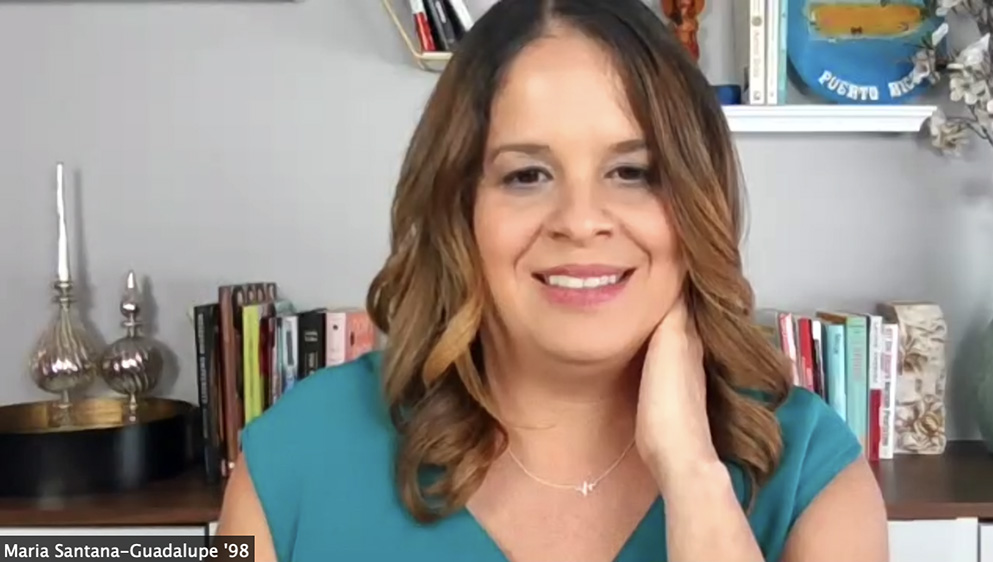
Maria Santana-Guadalupe ’98, who was raised in Harlem, New York, and attended public schools, spoke about her own Wesleyan experience, which she considers “one of the best experiences” of her life.
“My parents were extremely hardworking, but neither one of them went to college, so growing up it was very hard for me to envision myself at a place like Wesleyan,” she said. “It definitely wasn’t for someone like me, I thought. But I was accepted [to Wesleyan] and realized that they accepted me because they believed that someone with my background would add value to the institution. The more I accomplished during my time there, the more I began to believe that my voice matters—and look at that today—my voice is my most important work.”
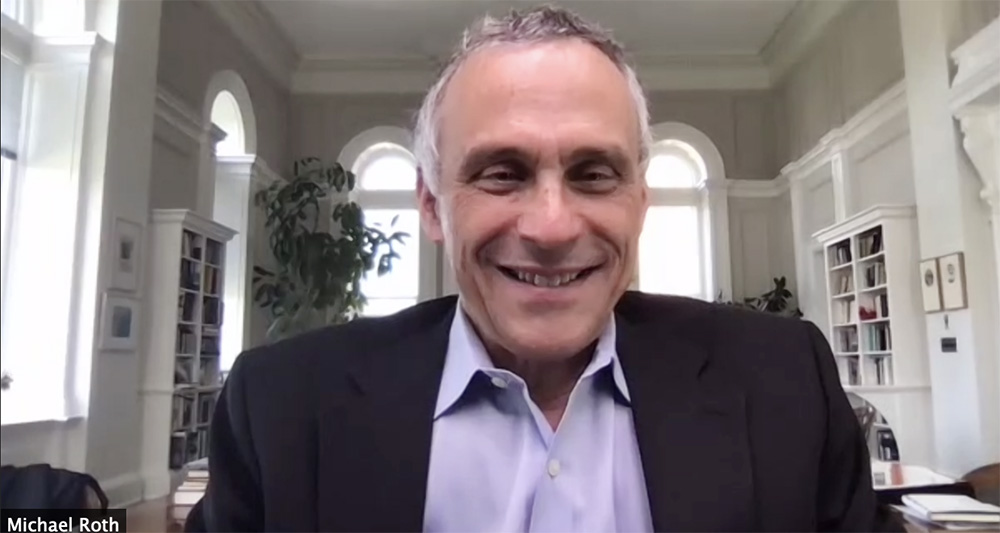
Continuing the discussion, President Roth mentioned how more than 300 colleges and universities nationwide have agreed to Wesleyan’s Engage 2020 (E2020) principles: “that civic preparedness is good for you as a student, it’s good for your school, and it’s good for the country,” he explained.
“People have different political views, but I’m trying to get more college university presidents to defend the right to vote and to make it easier for students to participate in the public sphere,” Roth said.

